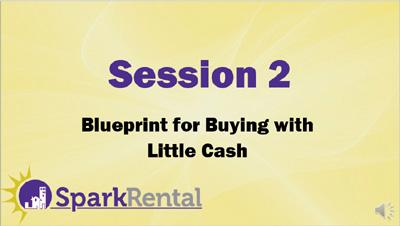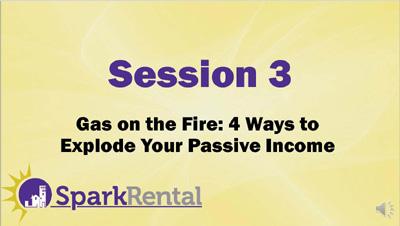 “I’ll just use this free template I stumbled across online as my lease agreement.” – Attributed to the Common Newbie Landlord, scientific name Stultus novitius.
If the idea above has ever occurred to you, you’re probably lucky enough to have never been to rent court. Landlords who aren’t so lucky will tell you: the first thing the judge asks to see is the lease agreement. And it better hold up to legal scrutiny.
That means it must comply with all state laws, which is not as simple as an extra clause or two (although state-specific clauses do matter – more on these shortly). Beyond meeting the minimum legal requirements, a strong lease agreement protects against losses. It is a barrier between you and property damage, lawsuits, rent defaults and other ways that bad tenants can cost you thousands.
Start thinking of your lease agreements as shields that you put in place to protect yourself legally and your property physically. Your shield must anticipate all of the most common ways a renter can hurt you or your property, and must have a layer in place to protect against each.
So what do protective lease agreements include, to shield landlords from lawsuits, rent defaults and property damage?
“I’ll just use this free template I stumbled across online as my lease agreement.” – Attributed to the Common Newbie Landlord, scientific name Stultus novitius.
If the idea above has ever occurred to you, you’re probably lucky enough to have never been to rent court. Landlords who aren’t so lucky will tell you: the first thing the judge asks to see is the lease agreement. And it better hold up to legal scrutiny.
That means it must comply with all state laws, which is not as simple as an extra clause or two (although state-specific clauses do matter – more on these shortly). Beyond meeting the minimum legal requirements, a strong lease agreement protects against losses. It is a barrier between you and property damage, lawsuits, rent defaults and other ways that bad tenants can cost you thousands.
Start thinking of your lease agreements as shields that you put in place to protect yourself legally and your property physically. Your shield must anticipate all of the most common ways a renter can hurt you or your property, and must have a layer in place to protect against each.
So what do protective lease agreements include, to shield landlords from lawsuits, rent defaults and property damage?
Clauses: Some Required, Some Protective
Even novice landlords (hopefully) recognize that they need a state-specific lease that includes clauses legally required in their state. For example, California lease agreements must include the Megan’s Law clause. If you show up in rent court with a lease that doesn’t include California-mandated clauses, be prepared for a long, drawn out, expensive nightmare. But beyond legally-required clauses are all the not-strictly-required-but-will-save-your-bum-in-court clauses. Does your lease include a Severability clause? A Security Not Promised clause? A Landlord’s Remedies clause? Legalese may be thick as brambles, but all of these clauses are there for a reason. They help ensure that there are no easy loopholes for your tenants to use to nullify or challenge their obligations outlined in the lease contract.Renter Responsibilities & Expectations
Nor does it end with legal clauses that protect enforceability. Your lease agreement should also clearly spell out tenant responsibilities to maintain and care for the property. For example, It should clearly state that the renter is required to put felt pads on their furniture feet, if you have hardwood, bamboo or faux wood floors. It should go on to state that they will be held directly liable for any scratches in said floors. You may also want to prohibit the renter from attempting to mount their TV to the wall. Aside from all the holes they’ll drill in the wall, it also protects against them doing it wrong and failing to screw into the studs. And hey, even if they did it right, do you want every tenant drilling holes in all the studs in that wall, over and over again?Free Video Training: Passive Income from Rentals
Good rental agreements also set expectations. They should include clauses informing the tenant that a property manager or landlord will inspect the property every six months. (During which you should check that they’ve complied with the lease, such as checking the furniture feet and floors.)
But as critical as a strong lease agreement is, it’s only the tip of the iceberg.
Disclosures
Legal requirements and protections don’t end at clauses. Many states have state-specific disclosures or addenda that must be included by law (e.g. New Jersey’s Truth-In-Renting Act). In some cases, these are conditional; for example, Georgia landlords must include the Georgia Flood Disclosure with the lease contract if the rental property has suffered any flood- or water seepage-related damage in the last five years.
Even the federal government requires additional disclosures for some rental properties. If your rental property was built before 1978, you need to include a lead-based paint disclosure, and include the EPA’s lead paint pamphlet. The tenant needs to sign the disclosure and acknowledge receipt of the pamphlet. Fail to do this, and you may have a difficult time evicting that tenant, even if they stop paying their rent.
Addenda
Beyond lease disclosures that are required by law (to protect the renter), you can and should include addenda that protect you. For example, always include a Property Condition Checklist, which you can fill out with the tenant upon move-in, and again upon move-out, to determine what damage was caused by the tenant and what was pre-existing.
Otherwise, you’ll have a tough time persuading the judge that the tenant caused the damage. It’s your word against theirs, and many judges lean toward siding with the tenant.
Other addenda protect you by detailing allowed – or prohibited – use of the property. They can include protections for allowing pets, preventing bed-bugs, using a pool and hot tub responsibly… the list goes on and on. It should also squarely place the liability for damage and faulty care on the tenant.
Also make sure you can customize your lease agreement package to change the terms. After all, each rental is unique!
Read llc mortgage loan requirements.
State Laws, Limits & Regulations
Beyond the lease clauses and disclosures being state-specific, the lease contract must not include anything that violates state limitations or restrictions. For example, nearly every state has limits on what the landlord can collect as a security deposit. Further, some states require that landlords hold that security deposit in a separate escrow account. Or disclose the bank where it’s held. Or return it with a certain rate of interest at the end of the lease term.
These requirements aren’t spelled out in a generic lease template shared by some well-meaning landlord on her personal blog.
You could have a perfectly-structured lease agreement, that isn’t enforceable because you tried to charge too much for late fees or the security deposit. Know your state laws and regulations, and follow them.
Fortunately for you, we include summaries of state landlord-tenant laws, for easy reference. And if you run into really thorny legal questions, you can ask a landlord-tenant attorney on the Landlord Legal Help page as well.
Your Shield Against Defaults, Damage & Lawsuits
People like to sue landlords. They’re easy targets, with lingering cultural distrust and vilification. Look no further than the archetype of the slumlord, or all the news stories about some greedy, selfish landlord putting a struggling single mother and her children out on the street to starve. And landlords make tempting targets for ambulance-chasing attorneys because they know landlords have at least one seizeable asset: the property itself.
Like any other business endeavor, landlords and property managers should hope for the best but plan for the worst. Protect yourself with a thorough, comprehensive lease package, that includes all state-specific clauses, disclosures and addenda.
An ounce of prevention is worth a hundred pounds of cure in the rental industry. Combine aggressive tenant screening with a protective, anticipatory, state-specific lease package to prevent problems before they ever have a chance to sprout, and you’ll find your ROI performs just fine.
What extra clauses do you include in your lease agreement? Does your lease have any secret weapons in it? Share with other landlords!
Related Article Read : How to avoid capital gains tax on property?
Read about investment property loans with low down payment.

























Having had a nightmare tenant that took a YEAR to get out, I can definitely speak to how important a strong lease agreement is. It would have taken half as long, but my lease was missing a couple things the judge said I should have had. I had to refile a couple times, complete nightmare
Yeah lease agreements definitely matter. Lord knows I’ve had some nasty experiences, which were made worse when they weren’t covered in the lease. Definitely not something to skimp on or just rubberstamp through